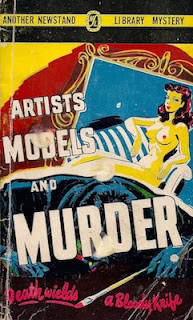Montreal's Crystal Palace as it was in preparation of the 1874 fête St-Jean-Baptiste, sixteen years after this verse was composed by lawyer L.J.C. Fiset (Joseph-Cyprien Fiset, 1825-1898).The version here is found in Les fleurs de la poésie canadienne (Montreal: Beauchemin & Valois, 1869).
Bonne fête!
LES VOIX DU PASSÉ(Pour la fête de St-Jean-Baptiste)
I
C'est la fête du peuple, il la veut grande et fière!
La nature sourit à sa noble bannière;
Le soleil annonce un beau jour!
Le Tout-Puissant exauce et la vierge qui prie
Et les bons citoyens offrant à la patrie
L'humble tribut de leur amour.
Que ne puis-je, en son nom, fixant tes destinées,
O Canada Français, t'annoncer des années
De gloire et de félicité!
Que ne puisse, de Dieu l'élu comme Moïse,
Mourir en signalant une terre promise
A ta nationalité!
Mais les temps ne sont plus où de divins oracles,
Aux peuples dévoyés, par d'éclatants miracles
Indiquaient un chemin tracé:
Aveugles, pour guider nos pas dans la nuit noire,
Ecoutons, saisissant le fil de notre histoire,
Ecoutons les voix du passé....
II
—"Peaux blanches, abordez sans crainte ce rivage,
"Oubliez parmi nous les périls du voyage
"À travers le grand lac salé;
"Nous vous offrons nos bois, nos fleuves, nos montagnes
" Et l'épi de maïs cueilli par nos compagnes
"Aux dents de perle, au teint hâlé.
"Partagez avec nous! Dans nos vastes domaines,
"Le castor vit en paix avec les douces rennes
"Qui viennent boire à son étang;
"L'esprit de feu qui brille au-dessus de nos têtes,
"En chef hospitalier, convie aux mêmes fêtes
"Le guerrier rouge et l'homme blanc.
"Soyez les bienvenus! mais quand nos solitudes
"Se rempliront du bruit d'étranges multitudes
"Qui sur vos pas vont accourir,
"Laissez à nos enfants les signes de leur race,
"Leur vie errante et libre et leur pays de chasse,
"Nos os et notre souvenir!"...
III
Des siècles expirés franchissant les ténèbres,
Race éteinte, pourquoi, sur des tons si funèbres,
Viens-tu jeter dans nos festins,
Comme un reproche amer, l'hymne de l'espérance
Où, jadis, saluant l'étendard de la France,
Tu croyais charmer les destins?
Viens-tu nous annoncer que l'espoir n'est qu'un rêve,
Que tout change ici-bas sans retour et sans trêve,
Que tout sentier mène au néant?
Qu'avec Tyr et Sydon, Babylone et Palmyre,
Des peuples, des héros, grands noms que l'on admire,
Nul n'échappe au gouffre béant?
Que semblable au torrent de la marée avide,
Des enfants d'Albion l'invasion rapide
Nous fera sentir ses rigueurs?
Que nos fils parleront une langue étrangère,
Que les traditions apprises de leur mère
Ne feront plus battre leurs cœurs?
Ah! cesse de troubler nos fêtes patronales!
D'un plus noble avenir nos brillantes annales
Offrent des gages glorieux.
Silence!... un chant plus doux module à notre oreille
Les refrains endormis que ce beau jour réveille.
Ecoutons la voix des aïeux!
IV
"Quand au sommet d'un mont stérile,
"Le royal habitant des airs,
"Loin des sentiers de l'univers
"A su se choisir un asile,
"Ce n'est pas que des aquilons
"Le cortège ait pour lui des charmes;
"Mais il ressent moins d'alarmes
"Pour l'avenir de ses aiglons.
"Tel, de l'heureuse Normandie
"Quittant la rive en soupirant,
"Aux bords lointains du Saint-Laurent
"Champlain fonde une autre patrie.
"Ce n'est pas l'exil de la Cour
"Qui le pousse vers cette plage;
"Non, son cœur y voit l'héritage
"Des Français qui viendront un jour!
"Ainsi commença l'épopée
"Qu'au prix de son sang généreux
"La France grava dans ces lieux
"Avec la hache, avec l'épée;
"Ce fut une œuvre de géant!
"Qui nous rendra nos jours de gloire?
"Pourquoi faut-il que la victoire
"Nous ait trahis au dernier chant!
"D'Israël le bras tutélaire
"Succombe aux coups de Dalila;
"Montcalm que, seul, Wolfe égala,
"Cède à la fortune arbitraire!
"Mourons! pour la dernière fois
"Sur nos drapeaux a lui l'aurore.
"Vivons! si Dieu nous laisse encore
"L'honneur, notre langue et nos lois!
"Dépôt sacré, pour ta défense,
"Nos fils, quand nous ne serons plus,
"S'armeront des mâles vertus,
"Seuls dons que nous laisse la France!
"Mais si par le sort envieux
"Leur âme, aux faux dieux asservie,
"Sur leurs autels te sacrifie,"
"Viens, viens nous retrouver aux cieux!"
Vos vœux s'accompliront: dormez, ombres chéries,
Dormez; nous le jurons par l'immortel Cartier!
Ce dépôt illustré par vos mains aguerries,
Gardé par notre amour depuis un siècle entier,
Cet auguste héritage, aujourd'hui que nous sommes
Eprouvés par la lutte, un demi-million d'hommes,
Qui songe à le sacrifier?
Le trahir? nous! comment? par peur? comme le lâche
Tout couvert de mépris justement prodigué!
Comme le serf obscur qui, courbé sur sa tâche,
Se plie au joug honteux de père en fils légué!
Par un sordide espoir? comme le mercenaire
Qui livrerait son Dieu pour un hideux salaire!...
Mais nous étions à Châteauguay!
Nous n'étions que trois cents à notre Thermopyle:
Pour défendre nos droits, nous serions trois cent mille
Invoquant la foi des traités;
Et votre sang soudain, s'allumant dans nos veines,
Déroberait encore aux Parques inhumaines
Nos immuables libertés!
Tels, des rochers rivaux que la discorde anime,
Unissent leurs efforts pour soustraire à l'abime
Les débris de leur seul vaisseau:
Les torts sont oubliés, le péril les efface;
De leurs divisions s'évanouit la trace,
Comme celles des vents sur l'eau.
V
Ainsi puisse Albion sur l'océan du monde,
Bénissant un accord si fécond en bienfaits,
Aux splendides couleurs de la reine de l'onde
Allier pour toujours le pavillon français;
Et puissent dans nos champs qu'un même fleuve arrosa,
L'érable et le chardon, et le trèfle et la rose,
Croître unis et fleurir en paix!
Related posts:

















